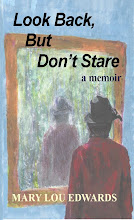My brother, our family's first-born, had been finicky, only five pounds, colicky, a fussy eater. A strange baby for our family said my father's three sisters who were in the habit of birthing jumbo jets.
When my brother wa
 s but a week old, my father's eldest sister placed her two-month-old daughter, nine pounds at birth and gaining weight at warp speed, on the bed next to her new cousin.
s but a week old, my father's eldest sister placed her two-month-old daughter, nine pounds at birth and gaining weight at warp speed, on the bed next to her new cousin."Oh my God!" my aunt exclaimed, "we've never had such a scrawny, pathetic baby in our family! How did this happen? He doesn't even look like he belongs to us."
Humiliated by the stamp of maternal failure, my mother vowed to rectify her mistake. She devoted herself to straining liver, mashing vegetables and pureeing perfect fruits to fatten my brother, hoping to make him worthy of the three arrogant aunts, the arbiters of family acceptance.
Her efforts were a waste—he gained not an ounce. Tony, the neighborhood druggist, prescribed weight gain tonics and appetite enhancers to no avail. The thin, bony infant developed into a slender little boy—adorable and bright, true, but shockingly "skinny and scrawny" blabbered the three crones.
Four years later my Mother was given an opportunity to atone for her sins. Again pregnant, she made novenas, not for a boy or a girl, but for a healthy baby that would eat. God answered her prayers.
Encouraged by the entire family, I was a "good eater" who redeemed my mother of her previous ignominy. I ate solids before I had teeth—eschewing mushy cereal in favor of pizza--a fabulous achievement. I preferred pasta to a pacifier. By age four, I could eat almost as much as a grown-up, cause for applause. I never refused seconds and always had room for more. I could eat dinner at home, supper at my Big Nonna's, a snack at Little Grandma’s, biscotti and milk at bedtime—all in one night.
I was a veritable mini-eating machine, the answer to my Mother's prayers. I put my monkey-jawed brother to shame as his cheeks puffed full of macerated food he refused to swallow.
"Okay, chew all night and you won't go to Kiddieland," my mother would threaten during dinner. "Look at your sister--she finished everything on her plate—such a good girl!"
My mother alternately lobbed shots of admonishment and approval, threats and compliments back and forth like some schizoid game of table tennis. "Please, Honey, eat," she pleaded, "Your sister ate her dessert and yours too because you didn't finish your meat."
Her head swiveled between the two of us as the drama of good and evil played out in front of Daddy, the scorekeeper, who cheered every swallow.
For all of the disappointment and aggravation my brother's eternal cud-chewing brought, my gobbling locked in my title as undefeated eating champion--a title that was not in the slightest way threatened even by the arrival of my baby sister. My chubby cheeks, wrinkly thighs and robust health clearly signaled that this sturdy twig would strengthen the hallowed family tree. The three drones were forced to reconsider their original disdain for my mother's genetic contribution.
"She is gorgeous," they exclaimed, "A perfect cherub! Look at those pudgy, strong legs! She's beautiful!" they cooed as I waddled about cookie in hand.
Then the cookie crumbled.
We almost never went to the doctor. Other than measles and mumps, we were healthy and, for the occasional sniffles, there was always Tony at Gabric's Drug Store.
Once, however, my sister, seventeen months younger than I, became lethargic and developed a croupy cough that wouldn't go away. Alarmed, my parents decided that a trip to the North Side—a world away—was in order to consult with our real doctor, the one who'd delivered us.
Russell Barrett M.D. was a massive, silver-haired general practitioner in the days before each body part had its own specialist. When not delivering babies, he amputated arms, repaired varicose veins, corrected crooked spines, cut out tonsils, healed ulcers and generally fixed whatever was broken. He diagnosed by sight and sound rather than textbooks and his booming pronouncements were indisputable though his expertise left something to be desired when dealing with the psyche. Once when my mom, whose daily responsibilities included the care of her terminally ill mother, octogenarian grandparents, perfectionist husband and three kids under the age of six, mentioned she was feeling a bit swamped, Doc prescribed she go downtown and buy a hat. That she had not a minute to breathe, was financially pressed, physically drained, mentally exhausted and emotionally depleted apparently escaped his medical radar. But he'd delivered three healthy babies, and had initials after his name so he had a lock on his sacrosanct status.
Dr. Barrett had seen neither my sister nor me since birth. As we entered his office for her appointment, his megaphone voice thundered,
"My God, what took you so long to bring her in—she looks awful!"
My mother was taken aback. "Does she really look that bad?"
"Bad?" he roared, "She's a mess. How could you allow this to get so out of control? This is a shame!
"Well," my Dad countered, "she's only been really pale the last day or two."
"Day or two?" he hollered, "This doesn't happen to a kid in a couple of days. Put her on the scale."
And, for the first time, everyone present realized he was talking about me.
"No, no, no, Dr. Barrett, we're here for the little one," my mother protested, "she's almost lost her voice from coughing so much."
"She'll be fine," he decided with a cursory glance at my sister as he rolled his chair back from the scale to his desk. "This one is in serious trouble."
My parents attempted to mount a defense.
"Doc, she's smart as a whip—her vocabulary is astonishing. She reads the Tribune to her Nonna all the time," my Dad offered.
"That's irrelevant—she weighs too much," he responded dismissively while scribbling on his chart.
"But she's a good swimmer and jumps double-dutch better than ten year old girls,” my Mother proffered. “She’s quite a gymnast—does birds’ nests on the rings."
"She's five and she's fat. The rest is unimportant. Put her on a diet!" he roared. "No more cake, no candy, no sweets, period! Do you hear me, Mother? Nothing in between meals, no snacks, no bread, cut out desserts. Are you listening, Mary! No cookies, skim milk, eliminate second helpings. I want to see a different kid in front of me when you bring her back in eight weeks."
He was glaring at my mother and had really worked himself into a lather. I wanted to ask my brother if a doctor has a heart attack does he go to another doctor or can he fix his heart himself, but then I figured my brother would say I was stupid so I just stared at the doctor's jacket which had Russell Barrett, M.D. written in red thread above a little pocket.
"What about the little one?" my Mother thought to ask.
"She'll be fine. Put a vaporizer on at night," Dr. God ordered as our family trooped to the front desk to make a new appointment.
I had a million questions leaving the doctor's office. Why didn't Dr. Barrett pay attention to my sister who was really the sick one? Why didn't the big fatso go on a diet himself if it was such a great thing? Why did he shout at mommy and not say anything to daddy? Why didn't it matter that I was smart and could read and swim? How could I change into a different kid? How do you lose fat—where does it go?
All these concerns were whirling in my head, but my mother looked very sad, and I didn't want to bother her with questions so I just whispered, "I'm sorry the doctor was mean to you. I promise I will stay on my diet so he never yells at you anymore." She squeezed my hand. “Really, Momma, you will never be ashamed of me again. I won’t ever get you in trouble.” She gave me a little, tiny smile that made me want to cry, but I couldn't cry and make her feel worse.
I had no idea, that over the years, the worst was yet to come for me.
The emaciated look of models and movie stars was speeding into vogue and voluptuous women were admired only in Rubens' paintings. Overweight kids reflected on a mother asleep at the wheel so there was no time to waste in preparing a girl for one-size-fits-most.
With the metamorphosis scheduled in eight weeks, the diet had to be fast-tracked and the scale god would decide my fate forevermore. In a culture that prized chubby babies, but looked askance at plump kindergartners, where mangia, mangia was a mantra, the goal would be a challenge.
Counting calories ranked right up there with counting blessings, and while health was important, image was almost on par so if lecturing, shaming and restricting were what it took to protect little butterballs from cookie jars and candy bars that was the way the ball bounced.
Overnight the fat little girl became the family’s designated obsession.
No sooner had we gotten in the car than my brother began what would become a childhood of sibling taunts.
"You can't go with Daddy to the drugstore for Green Rivers anymore!" he sneered. "You can't have milkshakes at David's or stop the Good Humor Man when he comes down our street," the teasing continued. "You can't have Italian lemonade when we go to Taylor Street because you are a fatty, fatty two by four!"
With this my mother, who adored her first-born son, reached over the back seat and smacked him in the mouth.
That slap was no match for the emotional hit I'd suffered.
At age five, I lost twenty pounds. My brother and sister gleefully consumed any contraband that accidentally came my way and snitched about any they were too slow to snatch from my hands. "We're only trying to help you. We don't want you to be a tub of lard," they sing-songed as they policed my every mouthful.
Everyone contributed her two cents about my diet, my body, me. My dad bragged they'd caught "it" in time. Sister Lucille, my kindergarten teacher, said now I could swing on the monkey-bars. Neighbors raved they didn't know me anymore. My Godmother said now my new body matched my beautiful face. Even the milkman said he didn’t recognize me.
But not everyone agreed.
"Madonna mia!" the three harridans lamented, "she used to be so gorgeous,” assuming, I suppose, my hearing had disappeared along with the weight. My friend, Connie, said she liked me just fine the way I used to be. The man at the shoestore asked if I'd been sick. Nonna wondered where her baby had gone. "You're disappearing before my eyes," she said in broken English.
No one noticed in the swirl of conflicting opinions my biggest loss had nothing to do with pounds. All of the qualities that had been praised and valued no longer mattered--being me was not good enough. The blueprint for an eating disorder had been drawn and the foundation built of words, mortared with mixed messages, would last a lifetime.
MLSE 01/10






